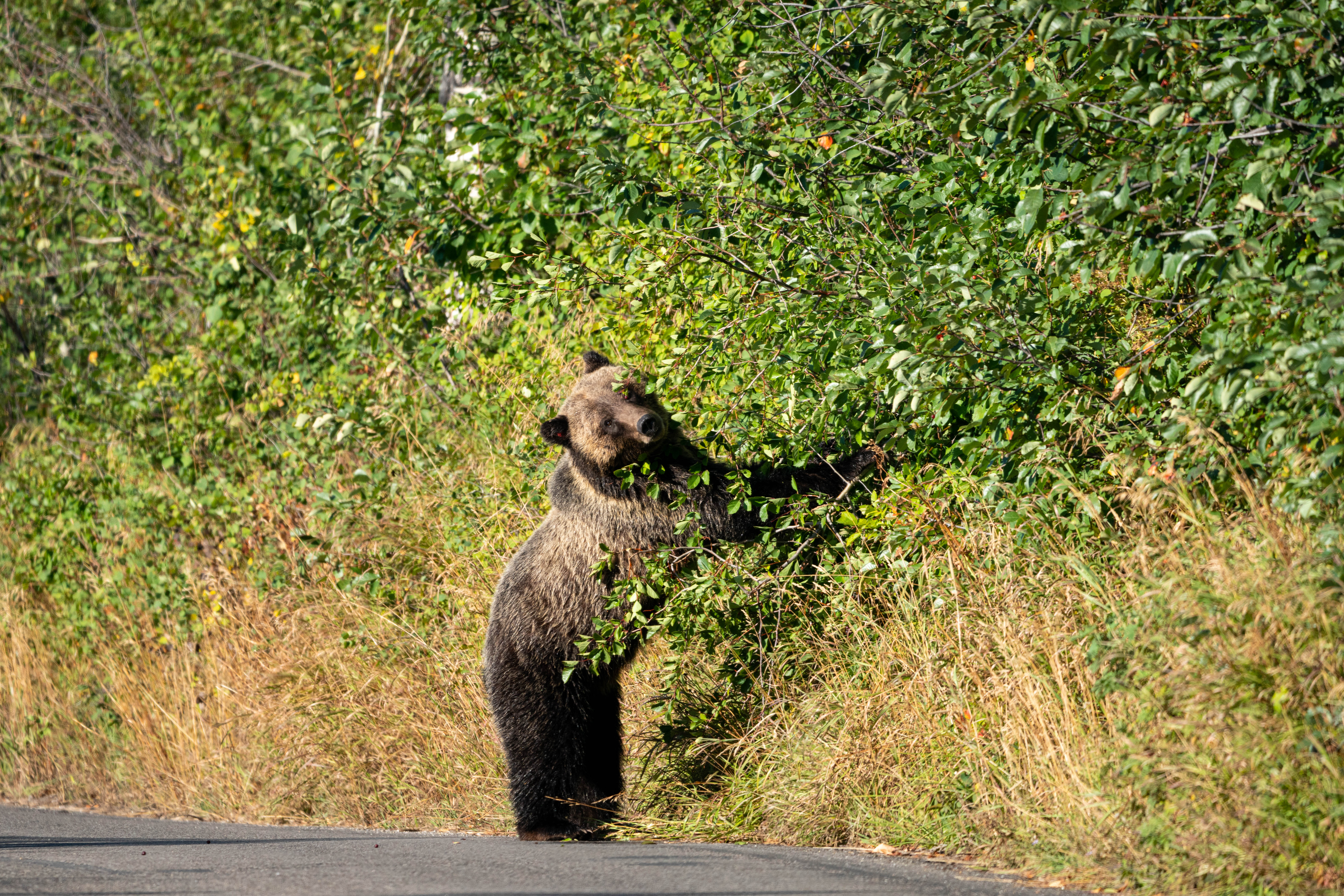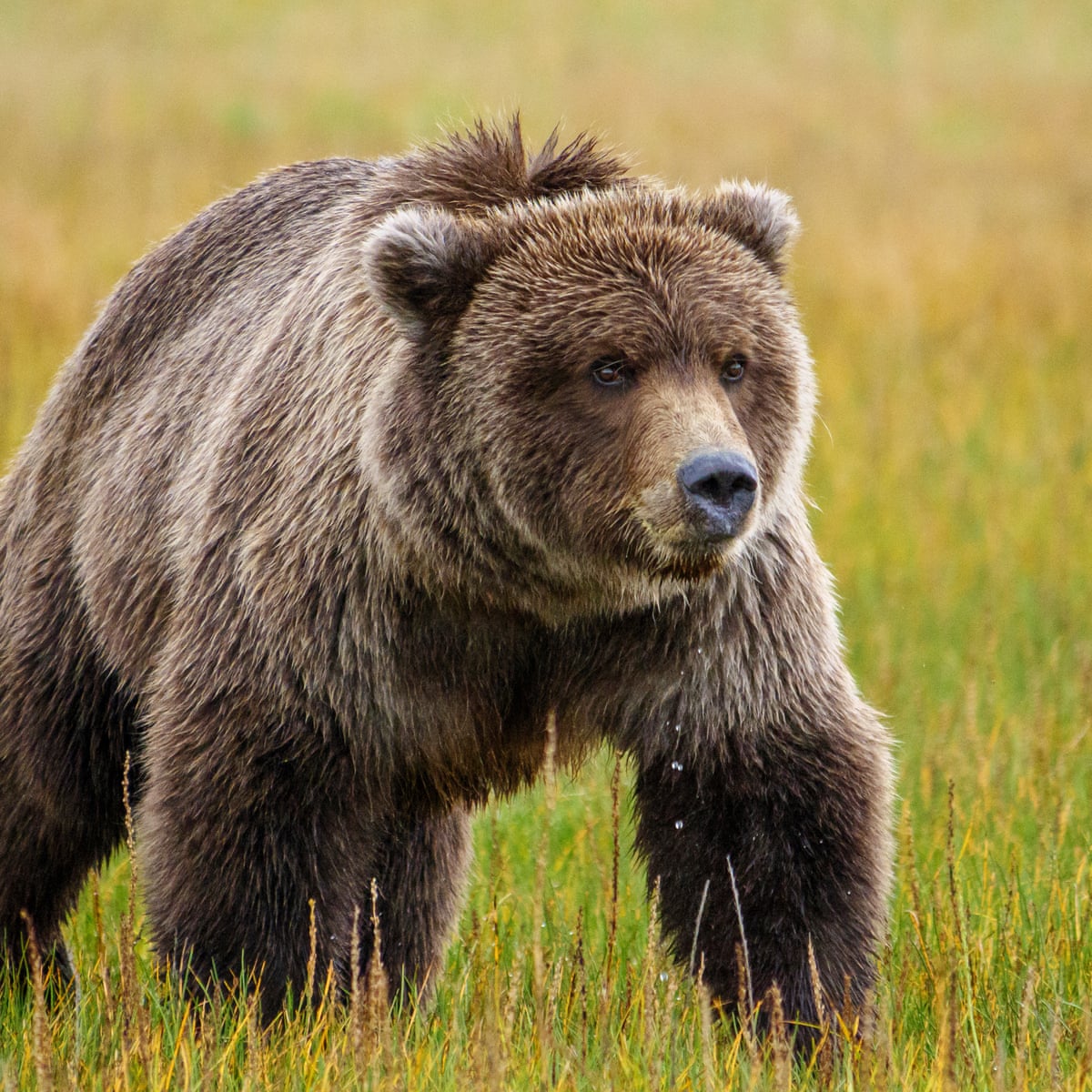Bear spray is effective in deterring moose by causing temporary discomfort and disorientation. However, its efficacy may vary.
When encountering a moose, having bear spray as a precaution can be helpful in warding off potential danger and creating a safe distance. Moose encounters in the wild can be unpredictable, and being prepared with bear spray can provide a sense of security.
Understanding the proper use and limitations of bear spray can help outdoor enthusiasts navigate encounters with wildlife effectively. We will explore the effectiveness of bear spray on moose and provide tips on its usage in wilderness settings.
Contents
The Effectiveness Of Bear Spray On Moose Encounters
The effectiveness of bear spray on moose encounters is a crucial aspect to consider when venturing into moose territory. Understanding how bear spray interacts with moose behavior and the mechanisms behind its effectiveness can be vital in ensuring safety in the outdoors.
Moose Behavior
Moose are large, powerful animals known for their territorial nature and potential aggression when feeling threatened. During encounters, moose may display defensive behavior, making it essential to be prepared with effective deterrents like bear spray.
Bear spray contains active ingredients like capsaicin, which irritate the eyes and respiratory system of animals upon contact. When properly deployed, bear spray creates a deterrent that dissuades moose from further approaching or attacking, providing a non-lethal defense option.
Case Studies
- Case 1: A hiker in Alaska successfully used bear spray to deter an aggressive moose, avoiding a potentially dangerous encounter.
- Case 2: Research shows that bear spray has been effective in preventing moose attacks in various wildlife encounters across regions where moose are prevalent.

Credit: www.nps.gov
Understanding Moose Behavior
Moose are massive creatures known for their unpredictable behavior. It is crucial to understand their instincts to know how bear spray can work on them.
Mating Season
Moose can become more aggressive during mating season, which typically occurs in the fall. They may be more likely to charge at perceived threats during this time.
Protective Instincts
Moose are fiercely protective of their young calves and territory. They may attack anything they perceive as a threat, including humans.
Mechanism Of Bear Spray
Bear spray is often considered as a defensive tool against bear encounters, but its effectiveness on moose is a subject of curiosity. Understanding the mechanism of bear spray can provide insight into its potential effectiveness on moose encounters.
Active Ingredients
Bear spray typically contains capsaicin, the same active ingredient found in chili peppers, which is the primary irritant for both bears and moose. It causes irritation to the eyes, nose, and respiratory system, acting as a deterrent for these animals.
Spray Coverage And Range
Bear spray is designed to create a cloud of spray upon deployment, with a coverage range of approximately 25 feet. This wide coverage and range enable a person to create a barrier between themselves and the animal, allowing for an effective deterrent.

Credit: www.facebook.com
Case Studies On Bear Spray Vs. Moose Encounters
If you’re heading out into moose country, it’s important to be prepared for any unexpected encounters. One essential tool that many outdoor enthusiasts swear by is bear spray. But does bear spray work on moose? Let’s take a closer look at some case studies that have been conducted to determine the effectiveness of bear spray against moose encounters.
Alaska Wildlife Conservation Center Study
In a study conducted by the Alaska Wildlife Conservation Center, researchers sought to understand the effectiveness of bear spray in deterring aggressive moose. The study involved recreating simulated moose encounters and observing the response of the animals to bear spray.
Results from this study showed that bear spray was indeed effective in deterring moose. In 85% of the encounters, the moose immediately retreated or changed direction when the bear spray was deployed. This suggests that bear spray can be a valuable tool in preventing moose attacks and ensuring personal safety.
Canadian National Parks Study
Another study conducted in Canadian National Parks aimed to evaluate the effectiveness of bear spray against various wildlife encounters, including encounters with moose. The study involved analyzing data from reported encounters and examining the outcomes when bear spray was used.
The findings from this study indicated that bear spray was successful in preventing moose attacks in the majority of cases. In fact, there were no reported incidents of serious injuries when bear spray was used properly. This underscores the potential effectiveness of bear spray as a deterrent against moose confrontations.
Based on the results of these case studies, it is clear that bear spray can be a valuable tool in mitigating the risks associated with moose encounters. However, it is important to remember that bear spray should be used responsibly and as directed. Additionally, it is crucial to give moose and other wildlife plenty of space and avoid provoking potential conflicts whenever possible.
Safety Guidelines And Best Practices
When it comes to encountering a moose, bear spray can act as a deterrent to keep you safe. Moose are sensitive to strong scents and bear spray can effectively deter them. It is important to follow safety guidelines and best practices when using bear spray to ensure your safety in moose encounters.
Using Bear Spray Correctly
When it comes to encountering moose, bear spray can be a useful tool for self-defense. However, using it incorrectly can lead to ineffective outcomes. Here are a few safety guidelines and best practices that you should follow when using bear spray:
- Keep the bear spray accessible and familiarize yourself with its operation before heading out into moose habitat.
- Hold the canister firmly, using both hands if possible, and remove the safety clip.
- Always aim bear spray slightly downward, towards the ground in front of the moose.
- Press down firmly, releasing a constant spray in short bursts to create a wall between you and the moose.
- Ensure the bear spray cloud is directed towards the moose’s face to maximize its effectiveness.
- If the moose charges, continue spraying until it changes its behavior or retreats.
- Remember, bear spray is not a guarantee of safety. It creates a temporary deterrent and allows you time to retreat.
Avoiding Moose Encounters
Preventing encounters with moose is the best way to stay safe. By following these guidelines, you can minimize the chances of encountering a moose:
- Stay alert and be aware of your surroundings when hiking or exploring wooded areas.
- Travel in groups, as moose are less likely to approach large numbers of people.
- Avoid areas where moose are known to be active, such as calving grounds or mating areas.
- Make noise while moving through dense vegetation to alert moose of your presence.
- Keep a safe distance from moose, ideally at least 50 yards (46 meters) away.
- If you encounter a moose, give it plenty of space and do not approach, especially if it shows signs of aggression.
- Lastly, remember that moose are unpredictable animals that should be admired from a safe distance.

Credit: www.theguardian.com
Frequently Asked Questions On Does Bear Spray Work On Moose
Can Bear Spray Be Used To Deter Moose Attacks?
Yes, bear spray can be effective in deterring moose attacks. Moose are generally timid animals, and the strong pepper spray in bear spray can cause temporary discomfort and irritation, deterring the moose from attacking further. However, it’s important to remember that bear spray should be used as a last resort and should not be relied upon as a guaranteed deterrent.
Is Bear Spray Harmful To Moose Or Other Animals?
When used responsibly, bear spray is not harmful to moose or other animals. The active ingredient in bear spray is capsicum, which is derived from chili peppers. It causes temporary discomfort and irritation to the eyes, nose, and throat, but it does not typically cause long-term harm.
It’s important to always follow the instructions on the bear spray canister and use it in a way that minimizes potential harm to wildlife.
Does Bear Spray Work Better Than Other Methods Of Moose Deterrence?
Bear spray is one of the most effective methods of moose deterrence. It creates a temporary barrier between you and the moose, causing discomfort and deterring them from attacking. Other methods, such as noise-making devices or physical barriers, can also be effective, but bear spray is often the preferred choice due to its convenience and ease of use.
It’s important to carry bear spray with you when venturing into moose habitat.
How Far Should I Be From A Moose To Effectively Use Bear Spray?
To effectively use bear spray against a moose, you should ideally be within a distance of 7-10 meters (about 23-33 feet). This allows for maximum accuracy and effectiveness when spraying. It’s important to remain calm and give the moose an escape route whenever possible.
Keep in mind that moose are unpredictable animals, so it’s crucial to use bear spray as a last resort and only when necessary to protect yourself.
Conclusion
Bear spray can be effective in deterring moose. It is crucial to follow proper usage guidelines and understand its limitations. While it may not always work, it can be a valuable tool in certain situations. It’s important to prioritize safety and to have a well-rounded plan when encountering wildlife in the great outdoors.



